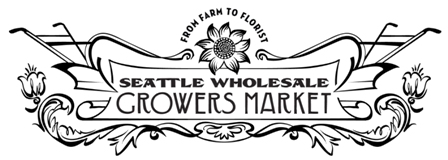Podcast: Play in new window | Download
Subscribe: Apple Podcasts | Podcast Index | RSS | More
How do flower farmers band together to take control of their distribution channels? This week’s podcast features a recording pulled from the 2014 audio vault, a fantastic presentation that I know will answer this and many questions about selling American grown flowers. I hope you find it inspiring.
The panel, “Cooperative Wholesaling Among Farmers,” features the history and experiences of three farmers’ co-ops in the Madison, Wisconsin area; in the Pacific Northwest; and in the nation’s Capitol.
Anecdotally, I’ve heard quite a bit of of interest in farmer-owned flower cooperatives around the country. There are probably as many potential farmer-to-florist models as there are individual floral marketplaces.
For example, I have personally heard from groups in Oregon; Sacramento, California; New York-Hudson Valley area; and in Ohio, all of whom are exploring the possibilities of a collective selling effort to reach a hungry customer base of florists, event and wedding designers, and other wholesale buyers. So clearly, the potential has yet to be tapped.
This panel was presented last fall at the Association of Specialty Cut Flower Growers annual conference in Wilmington, Delaware. Slow Flowers was a sponsor of that conference and I’ve aired several other panels in the past.
Today, you’ll hear from Barbara Lamborne of Greenstone Fields, a Northern Virginia organic flower grower and co-founder of Capitol Flower Growers; Joe Schmitt of Fair Field Flowers; and Diane Szukovathy of Jello Mold Farm and the Seattle Wholesale Growers Market. The three generously share their experience as leaders of successful regional co-ops around the country and how they made it happen.
The presentation starts with Diane Szukovathy, co-founder of Jello Mold Farm in Mt. Vernon, Washington, and founding chair of the Seattle Wholesale Growers Market. Diane was one of this podcast’s first guests, appearing in Episode 103 when she discussed the co-op model in depth.
Be sure to visit debraprinzing.com to find links to several articles that I and others have written about the Seattle co-op model. Full-disclosure: I’m not totally objective here. As one of two non-farmer board members who volunteer for this endeavor, I care deeply about the co-op model. It is so rewarding to work closely with flower farmers like Diane and I know that her insights will help point you to resources for possible collaborations in your own farming community.
The next speaker is Joe Schmitt, who I and many consider the elder statesman of the American cut flower movement. Long before the flower farming craze burst onto the mainstream scene, Joe was growing flowers on his Madison, Wisconsin farm. He is a founder of Fair Field Flowers, a Slow Flowers member that serves as a wholesale farmer-to-florist cooperative selling to florists in Madison, Milwaukee and beyond.
Approximately eight farms combine their resources to supply floral customers from spring through fall. Where the Seattle Wholesale Growers Market is a central hub that sells direct to florists five days a week, Fair Field Flowers is a delivery truck (like a wholesaler on wheels) that delivers flowers to its customers in key markets.
The panel continues with a presentation from Barbara Lamborne of Greenstone Fields, one of the founders of Capitol Growers, which until recently served the Washington, D.C. market. At the time of the presentation, Capitol Growers had lost one of its three founding members. And as of 2015, the cooperative has sadly disbanded. There are lessons to learn here, from failures as well as successes.
Some of the best information comes at the end of the panel presentations during the Q&A portion. Hang in there to listen to the amazing wisdom from farmers with years of experience growing quality American flowers.
Episodes of the Slow Flowers Podcast have been downloaded more than 67,000 times. I thank you and others in the progressive American-grown floral community for supporting this endeavor.
Until next week, you’re invited to join me in putting more American grown flowers on the table, one vase at a time. And If you like what you hear, please consider logging onto Itunes and posting a listener review. THANK YOU to each and every one of you for downloading, listening, commenting and sharing. It means so much.
The content and opinions expressed here are either mine alone or those of my guests alone, independent of any podcast sponsor or other person, company or organization.
The Slow Flowers Podcast is engineered and edited by Andrew Wheatley and Hannah Holtgeerts. Learn more about their work at shellandtree.com.











